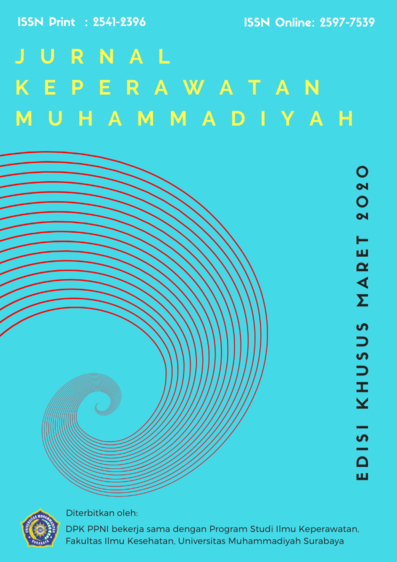Hasil Uji Fitokimia: Kandungan Royal Jelly Apis Mellifera Sebagai Persiapan Suplemen Prakonsepsi
DOI:
https://doi.org/10.30651/jkm.v5i2.4076Keywords:
Uji FTIR, Uji Fitokimia, Uji total fenol, Royal Jelly, prakonsepsiAbstract
Objective: This study aims to identify chemical bonds and chemical compounds using the FTIR method, as well as using phytochemical tests to assess what ingredients are contained in royal jelly.
Methods: This study was a laboratory study conducted at the MIPA Chemistry Laboratory and the Biochemistry Laboratory, Faculty of Mipa, Hasanuddin University, Makassar. The sample used in this study was royal jelly obtained from the Forestry Laboratory of Hasanuddin University Makassar. Examinations used in the form of FTIR test (Foourier Transform Infrared) and Phytochemical Test (flavonoids and phenolic).
Results: royal jelly apis mellifera contains flavonoids and polyphenols which play an important role as preconception supplements as evidenced by the results of phytochemical and FTIR tests.
Conclusion: This study contains flavonoids and polyphenols in royal jelly which are antioxidants, both of which are used as ingredients that can be used in the production of initial products and as supplementary supplement care for preconception, preventing several diseases resulting from lack of antioxidants in the body.References
Ahmed, W. M. S. et al. (2014) ‘Royal jelly attenuates azathioprine induced toxicity in rats’, Environmental Toxicology and Pharmacology. Elsevier B.V., 37(1), pp. 431–437. doi: 10.1016/j.etap.2013.12.010.
Asadi, N. et al. (2019) ‘Effect of royal jelly on testicular antioxidant enzymes activity, MDA level and spermatogenesis in rat experimental Varicocele model’, Tissue and Cell. Elsevier, 57(February), pp. 70–77. doi: 10.1016/j.tice.2019.02.005.
Azab, K. S. et al. (2011) ‘Royal jelly modulates oxidative stress and tissue injury in gamma irradiated male Wister Albino rats’, North American Journal of Medical Sciences, 3(6), pp. 268–276. doi: 10.4297/najms.2011.3268.
Balkanska, R., Marghitas, L.-A. and Pavel, C. I. (2017) ‘Antioxidant Activity and Total Polyphenol Content of Royal Jelly from Bulgaria’, International Journal of Current Microbiology and Applied Sciences, 6(10), pp. 578–585. doi: 10.20546/ijcmas.2017.610.071.
Caixeta, D. C. et al. (2018) ‘Adaptogenic potential of royal jelly in liver of rats exposed to chronic stress’, PLoS ONE, 13(1), pp. 1–13. doi: 10.1371/journal.pone.0191889.
Duhig, K., Chappell, L. C. and Shennan, A. H. (2016) ‘Oxidative stress in pregnancy and reproduction’, 0(0), pp. 1–4. doi: 10.1177/1753495X16648495.
Eshtiyaghi, M. et al. (2016) ‘Royal jelly may improve the metabolism of glucose and redox state of ovine oocytes matured in vitro and embryonic development following in vitro fertilization’, Theriogenology. Elsevier Ltd, 86(9), pp. 2210–2221. doi: 10.1016/j.theriogenology.2016.07.019.
Ghanbari, E., Nejati, V. and Khazaei, M. (2016) ‘Antioxidant and protective effects of Royal jelly on histopathological changes in testis of diabetic rats’, International Journal of Reproductive BioMedicine, 14(8), pp. 511–518.
Gu, H. et al. (2018) ‘Antioxidant activity of royal jelly hydrolysates obtained by enzymatic treatment’, Korean Journal for Food Science of Animal Resources, 38(1), pp. 135–142. doi: 10.5851/kosfa.2018.38.1.135.
Karadeniz, A. et al. (2011) ‘Royal Jelly Modulates Oxidative Stress and Apoptosis in Liver and Kidneys of Rats Treated with Cisplatin’, 2011. doi: 10.1155/2011/981793.
Kocot, J. et al. (2018) ‘Antioxidant potential of propolis, bee pollen, and royal jelly: Possible medical application’, Oxidative Medicine and Cellular Longevity, 2018. doi: 10.1155/2018/7074209.
López-Gutiérrez, N. et al. (2014) ‘Fast analysis of polyphenols in royal jelly products using automated TurboFlowTM-liquid chromatography-Orbitrap high resolution mass spectrometry’, Journal of Chromatography B: Analytical Technologies in the Biomedical and Life Sciences. Elsevier B.V., 973, pp. 17–28. doi: 10.1016/j.jchromb.2014.09.038.
Manzo, L. P. et al. (2015) ‘Royal jelly and its dual role in TNBS colitis in mice’, Scientific World Journal, 2015. doi: 10.1155/2015/956235.
Pourmoradian, S. et al. (2014) ‘Effects of royal jelly supplementation on glycemic control and oxidative stress factors in type 2 diabetic female: A randomized clinical trial’, Chinese Journal of Integrative Medicine, 20(5), pp. 347–352. doi: 10.1007/s11655-014-1804-8.
Ramadan, M. F. and Al-Ghamdi, A. (2012) ‘Bioactive compounds and health-promoting properties of royal jelly: A review’, Journal of Functional Foods. Elsevier Ltd, 4(1), pp. 39–52. doi: 10.1016/j.jff.2011.12.007.
Silici, S. et al. (2011) ‘The protective effect of royal jelly against cisplatin-induced renal oxidative stress in rats’, World Journal of Urology, 29(1), pp. 127–132. doi: 10.1007/s00345-010-0543-5.
Teixeira, R. R. et al. (2017) ‘Royal jelly decreases corticosterone levels and improves the brain antioxidant system in restraint and cold stressed rats’, Neuroscience Letters. Elsevier Ireland Ltd, 655, pp. 179–185. doi: 10.1016/j.neulet.2017.07.010.
Zargar, H. R. et al. (2017) ‘Long-term treatment with royal jelly improves bleomycin-induced pulmonary fibrosis in rats’, Canadian journal of physiology and pharmacology, 95(1), pp. 23–31. doi: 10.1139/cjpp-2015-0451.
Downloads
Published
Issue
Section
License
- Penulis tetap memegang hak atas karyanya dan memberikan hak publikasi pertama kepada jurnal ini yang secara simultan karya tersebut dilisensikan di bawah:Â Creative Commons Attribution-ShareAlike 4.0 International (CC BY-SA 4.0)













